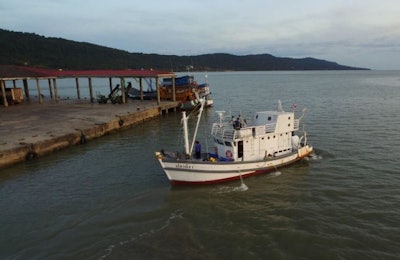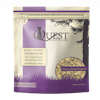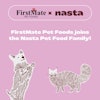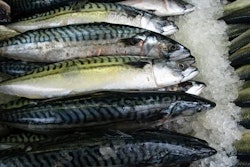
Photo courtesy: Thai Union
A panel of three Ninth Circuit United States Court of Appeals judges dismissed class action lawsuits against pet food companies over alleged use of fish caught by forced laborers, reported Courthouse News Service in July. The lawsuits against Nestle Purina, Mars Petcare and Big Heart Pet Brands (J.M. Smucker) arose after reports by the Associated Press and New York Times documented the lives of Southeast Asian men enslaved on Thai fishing vessels. The judges cited a 2006 decision by a California appeals court, Daugherty versus America Honda Motor Co. In that case, the legal conclusion held that the carmaker did not need to disclose product defects that occurred outside the warranty period.
Purina’s response to forced labor in Thai fish supply
In the Purina case, four consumers of Fancy Feast cat food sued Nestle Purina over claims that the food contains fish from a Thai supplier that uses slave labor. The lawsuit was dismissed in December 2015, but the plaintiffs appealed the decision.
In November 2015, an internal investigation by Nestle found that migrant workers in Thailand are sold or lured under false pretenses and forced to catch and process fish that ends up in its supply chains.
In December 2017, Nestle and Thai Union Group sponsored the launch of a demonstration vessels to promote human rights and humane working conditions on Thai fishing vessels. Regularly scheduled viewings and training workshops will demonstrate to boat owners and crew how to improve the working standards for fishers at sea, according to a press release. The renovated boat demonstrates the standards set for boats greater than 24 meters by the International Labor Organisation’s (ILO) C188 convention for human rights at sea, as well as Thailand’s updated fisheries regulations.
“Unfortunately, no company sourcing seafood ingredients from Thailand can guarantee that it has completely removed forced labor practices or human rights abuses from its supply chain, due to the widespread nature of these issues,” says a statement on Nestle’s website. “Nonetheless, Nestlé launched an Action Plan in 2015 to tackle unacceptable practices, and we are now confident that seafood products from problematic Thai fishing vessels is not entering our supply chain.”
Lawsuits alleged slave fishermen in pet food supply chains
J.M. Smucker’s Big Heart Pet Brands also faced a lawsuit. In that suit, the plaintiff Jessica Hughes alleged that Big Heart Pet Brands imported fish-based pet food ingredients from suppliers who use slave labor and should therefore warn customers of this on its labels. The U.S. Bureau of International Labor Affairs recognizes that fish and shrimp products exported from Thailand may be the result of forced labor.
Mars Petcare also faced a lawsuit over fish and shrimp products allegedly produced using slave labor. The plaintiff’s lawyers argued that Smucker was legally obliged to state on pet food packaging that the ingredient supply chain may involve slavery.

















